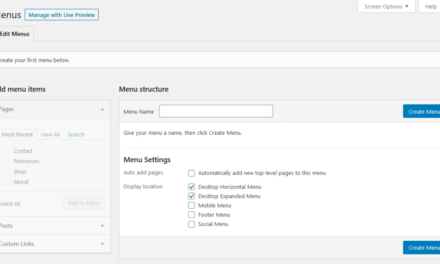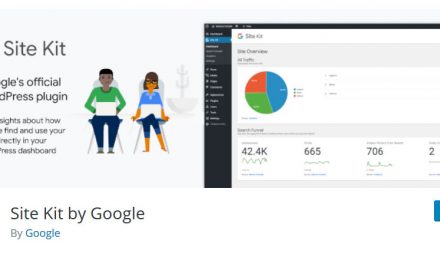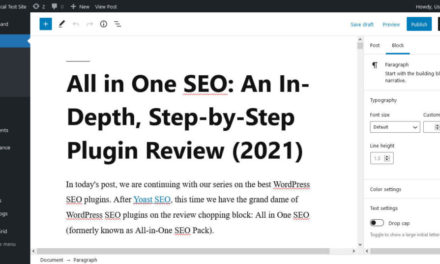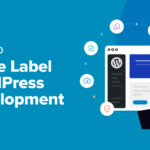AI continues to dominate the headlines. Everyone is wondering how it will change the way we live and do things, including if it will replace us all. One area where it is relevant especially for website owners and online marketers to examine the impact that generative AI will have is search and SEO.
Since search engines and websites are both in the business of answering users’ search for information, it makes sense to ask if artificial intelligence will take over their job as well. In the future, if someone wants to know the birthplace of Leonardo da Vinci or how to cook a three-course gluten-free menu, won’t they just type it into ChatGPT?
To answer this and many other questions, in this post we will take a deep dive into the topic of AI in search and SEO. We will look at why artificial intelligence will likely have an impact in those areas and predict concrete ways the technology will change how we do online search and optimize our websites.
Why Would AI Impact Search and SEO?

If you haven’t been paying attention too much to this topic, you might be asking yourself how artificial intelligence and search engines are even related. Why would one affect the other?
Considerable Service Overlap
As already alluded to in the introduction, artificial intelligence and search engines intersect in major ways in what they do. Two of their main functions are answering questions and delivering information. Only that generative AI is arguably way better at it.
Think about it. When you enter a query into a search engine such as Google, it shows you the usual blue links and other SERP elements with content that relates to your query.
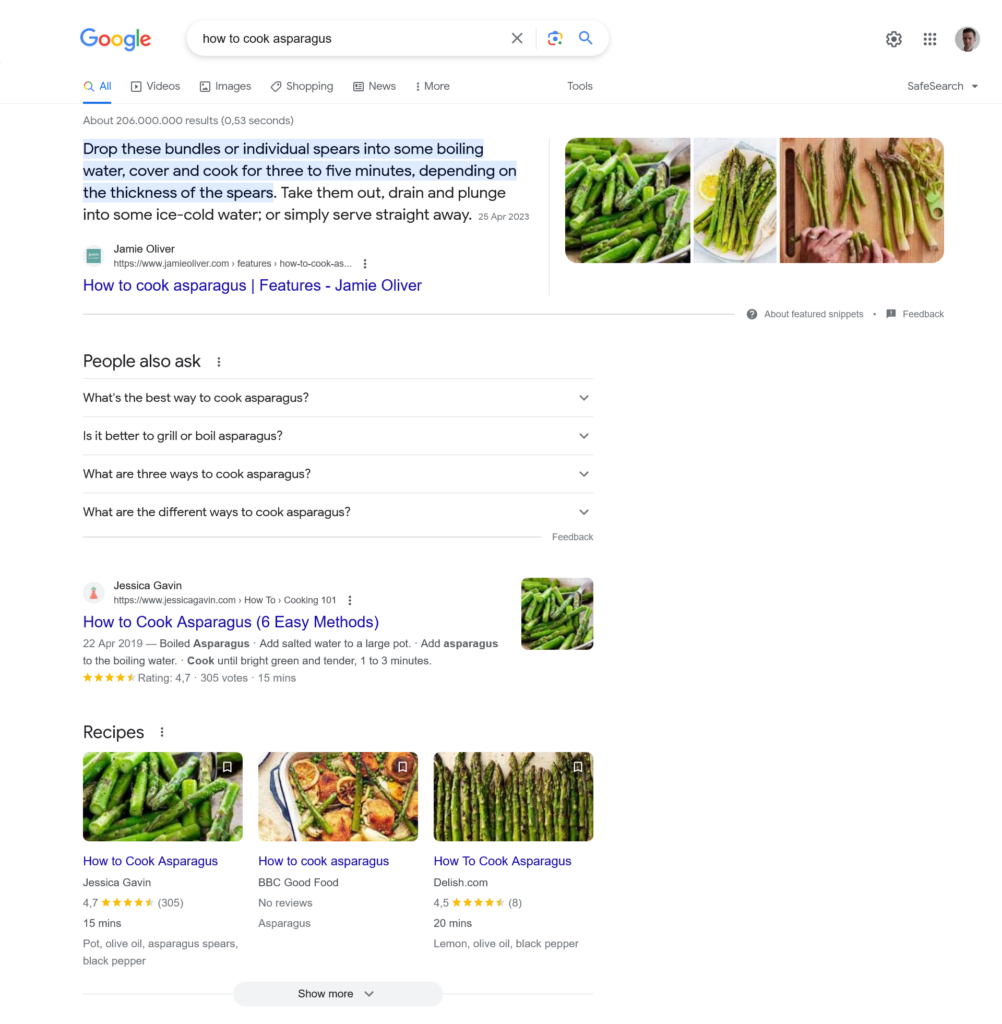
Depending on your question or the information you are looking for, you might even find it already answered in the results themselves.
However, especially when trying to learn more complex things, you often have to go through one or several web pages before you find all the information you’ve been looking for.
Generative AI like ChatGPT, on the other hand, directly delivers exactly the information you requested and only that.

(It also doesn’t tell you long-winded stories before giving you a recipe in order to please the Google algorithm.)
In addition, if you have follow up questions or need clarifications, you can pose those right away and have them delivered to you as well — all in the form of a conversation. It’s basically a shortcut to finding out what you want.
On Opposite Ends of the Content Equation
In addition, generative AI also dabbles in one of the other main areas that Google is interested in: content. We all know that content is one of the main ways Google ranks web pages, which is why content marketing has been one of the go-to techniques for building traffic for websites for a long time.
Content creation is also one of the main ways that humans are currently using AI. ChatGPT and other large language models (LLMs) are able to string words together and create written content faster than humans.

Therefore, it’s not unreasonable to expect a flood of new AI-written content to hit the web, creating more work for search engines to index and additional competition for those who wish to rank in them. In some corners of the Internet, the fear is that this could greatly dilute the quality of search results.
Is AI the End of Search Engines and Organic Traffic?
Understandably, many of those who depend on Google and other search engines for their website traffic look at this development with skepticism. It seems that both of of generative AI’s main functions have potentially the same outcome: less traffic from organic search for websites. That’s both because fewer people will use search engines and because they will have a harder time not drowning in the amount of content out there.
And there are good reasons to think that:
- Paul Buchheit, the creator of Gmail, predicted on Twitter that ChatGPT will completely disrupt Google’s main business within two years.
- When Google introduced its own AI assistant, Bard, its stock fell by seven percent (a cool $100 billion). Granted, this was mostly because the AI gave a wrong answer but it did not seem like a good sign at the time.
And it is a valid question how Google will adapt to the change. 80 percent of its revenue comes from its ad business and a large part of that from search results. It’s also not that they don’t know how to build AI, they have been working on it for years.
Their problem seems to be more about how to monetize AI and integrate it into their existing business model. If there is no more need to visit search results, how will they continue to make money? That currently seems to be the biggest impact AI has on the search engine.
These Kinds of Predictions Aren’t New
On the other hand, predictions for the end of Google and other search engines aren’t something we haven’t heard before.
- When Alexa, Siri, and other voice activated assistance came out, some people predicted their ability to directly answer user questions would greatly impact the traffic that Google and other websites receive. As we know now, that didn’t happen.
- When Google started answering questions directly in the search results, resulting in more zero-click searches, there were fears that it would stop sending actual traffic to websites, making them obsolete. That didn’t happen either.
Sure, both of these technologies have had an impact on how much traffic goes to websites from search. That’s especially true for those specialized in answering simple questions. However, the reality is also that Google keeps sending billions of visitors to websites every day.
In addition, in the past, the rise of new technologies simply changed the way we search instead of doing away with it. See voice search from virtual assistants, people adapted to that by doing voice SEO.
Finally, one of the the strongest arguments that the Googlepocalypse isn’t upon us right this moment is that Google’s market share remains flat. And that’s even though ChatGPT has been around for a while now.

The Future of Search and SEO With AI
However, even though the changes we are seeing might not be as drastic as some predict, it is unlikely that the emergence of generative AI will have no impact on search engines at all. So, to get a better understanding of what to expect, here are some predictions for what will change with the rise of AI.
1. Search Engines Will Offer Their Own Generative AI
One way that AI will have an impact on online search is that it will increasingly integrate with it. Microsoft, the owner of the Bing search engine, is not only one of the biggest investors into OpenAI, the company behind ChatGPT, but is already offering generative AI in their search (the downside is, you have to use the Edge browser to use it).

Plus, as mentioned above, Google recently announced their own thing, called Search Generative Experience.
In addition, the Chinese search engine is Baidu apparently working on a ChatGPT competitor of their own. So, one change we can expect to search from AI is that we will interact with it on search pages.
It’s also important to note, however, that AI in search is not a new thing. Google has been using RankBrain for years in delivering search results. What’s going to be new is that AI is going to be front and center and you will directly interact with it instead of it just running in the background.
2. Easily-Answered Content Will Perform Worse
The writing’s been on the wall for quite a while but if your website only contains content about questions that are easily and quickly answered, it probably won’t survive the age of AI. There are fewer and fewer reasons for people to visit these types of websites. We can already see that with zero-click searches and Google answering questions directly in the SERPs.

This isn’t going to get any better with generative AI. Both standalone AI products and AI in search engines will answer these kinds of questions with ease. Therefore, purely informational content geared at answering singular questions is probably not a good long-term strategy for building website traffic.
Of course, you can include this type of information in your content for context and additional value. However, as standalone content it’s not really a good option and will become less so over time.
3. Quality, Above All, Remains King
Yes, generative AI makes it easier to generate content. Yes, that means we will likely see an influx of new content on the web, meaning more competition for keywords. However, for a while now, ranking hasn’t been about content quantity but quality.
Google is already pretty good at filtering out the noise and delivering quality content to its users. That means, if you want to rank well, you have to continue to create high-quality and relevant content. That also includes the usual suspects like E-A-T, structured data, and other quality markers.

Whether you use ChatGPT to do so or not doesn’t matter. What matters is the end result, if it delivers what users want and are happy to link to.
This isn’t very different from the way it has been for a while. Only the bottom has been raised now that ChatGPT allows people to write “original” articles who would otherwise simply have scraped and plagiarized existing content. To paraphrase an expert panel of copywriters I recently watched, “you are only in trouble if you were already creating content that is worse than what ChatGPT can do.”
4. Generative AI Results Will Continue to Struggle With Credibility
The problem with AI content is the extra work you need to spend on fact checking. Currently, ChatGPT does not have access to the Internet. It is relying on its training data for answers, which only goes until October 2021 at this point. After that, it doesn’t have any knowledge of current affairs.

Why don’t its makers keep it up to date? Because training it is a cost and labor-intensive endeavor and can’t be done all the time. Therefore, ChatGPT is an unreliable source of knowledge for certain information.
Apart from that, generative AI generally has a bit of a problem with delivering false information. For example, OpenAI’s flagship has been found to simply make up citations.
You also need to keep in mind that AI’s answers are highly dependent on the data it has been fed. That’s its entire horizon, it can not do additional research in order to check its statements for truth. Therefore, any biases or factual errors in the training data will be part of the output.
Finally, there is the problem of plagiarism. We don’t know where AI is getting its information from and if it’s inadvertently stealing the content elsewhere. So, until that is fixed, you still need to rely on other sources of information and fact checking before AI assistants can fully replace search engines or create flawless content. Seeing as search engines still struggle with showing irrelevant or false information, it’s probably something that won’t fully go away.
5. Originality Becomes a Big Plus
Something that’s important to keep in mind is that AI tools don’t have their own knowledge base. Instead, they get trained on content that already exists and can base their responses only on that.
As consequence, by definition, these tools can only rewrite what is already out there. They are incapable of original thought, doing their own research, or other creative tasks. Therefore, originality is always something you can use to your advantage.

That’s doubly so because of what we talked about earlier about AI training data. Because of the costs and effort involved, it’s likely going to be real-time data, at least not for a while. Therefore, if you can conduct and publish original research, it will remain exclusive to your site for quite a bit.
Again, this is not anything new. It has been relevant since E-A-T and will likely continue to be with AI in the mix.
6. Content Promotion Remains Key
Another thing to keep in mind is that content creation is just one part of the equation. Promoting your content and getting it in front of people. While organic search is the main traffic source for many websites, it’s not the only basket you should put your eggs into.
Already pre-AI, you needed a content promotion strategy to earn links and get the word out. This is not going to change with artificial intelligence in the mix.
However, what might grow in importance is platform diversity. As can you see in the Google video above, search engines of the future pull content from a lot of different sources including TikTok and YouTube. Therefore, it’s a good idea to branch out to different formats for better visibility and engagement.
What will also become an interesting question is how to get AI to use your content for their answers and possible citations. That’s very hard to answer at this point and really depends on how LLMs will evolve. In the future, they will likely become just another source of traffic that you need to try and optimize for.
7. AI Will Help With SEO
On the content end, we likely to not only see artificial intelligence on the side of search engines but also those who wish to rank in them. AI has the potential to take over many tasks related to search engine optimization. There was actually an interesting discussions at WordCamp Europe 2023 on that topic (the video below starts at the right time for it).
Tools like SEMrush already use artificial intelligence for keyword research, competitor analysis, and other SEO measures. However, it can also help with content optimization, do grunt work like filling in image ALT tags, and provide proofreading.
In addition, AI can help create visuals, including charts and graphs, to further improve the content. What’s more, in the future we will likely use AI to better understand our analytics, spot trends, and analyze user behavior and search intent. Google Analytics 4 already has some machine learning capabilities built in for that.

Finally, AI could help improve overall user experience by analyzing your site and making recommendations for how to improve it.
8. Vertical Search Will Become a Thing
One way to address the shortcomings that generative AI still demonstrates as a search tool is to use it in a more targeted fashion. That means training models in datasets for specific topics and topical areas.
This is called vertical search because it is deep rather than broad. It makes it easier to select the right sources and keep bias out of the knowledge base because of the more limited set of information. You can also more easily adhere to things like copyright, privacy laws, and other regulations.
Areas that are highly suitable for these kinds of AI assistants is medical research, finance, or even coding and development. So, while generative AI might not replace Google anytime soon, you can expect specific AI-powered search tools that are limited but highly knowledgeable in certain areas.
How Do You Think Generaitve AI Will Impact Search and SEO?
The effect of generative AI on search and SEO is hard to predict with absolute certainty. We are only at the beginning of the development. AI has only recently hit the world stage, so we don’t know where we are going from here.
Like other technologies before, it’s unlikely to eliminate search engines and leave websites without traffic. More likely, it will change the way we search online and website owners will need to find new ways to optimize their sites for that.
With search engines integrating with AI, certain types of content will likely die out. Back in the day, it was keyword-stuffed articles, now it will be content whose information can simply be answered directly. What stays the same is need for quality and fulfilling the needs of your audience in order to stand out.
Then, you have to have a solid promotion and marketing plan in place. The good news is that you will also have more and more AI tools at your disposal to help you create and execute it. And this is only the beginning. There are probably a number of other ways AI will impact search and SEO that we don’t even know yet.
What’s your prediction for the changes that artificial intelligence will bring to the areas of search and SEO? Please share your insights below!



